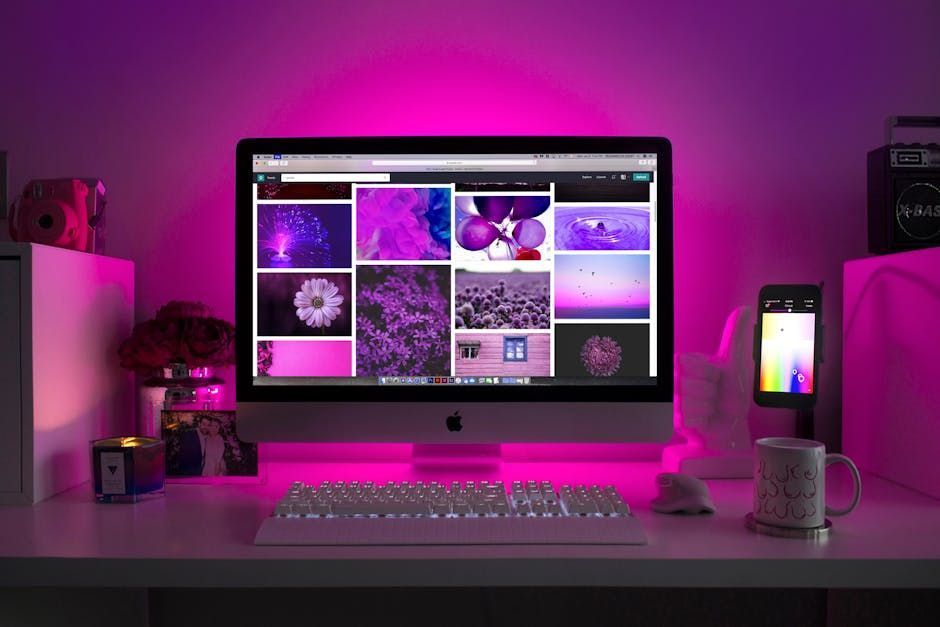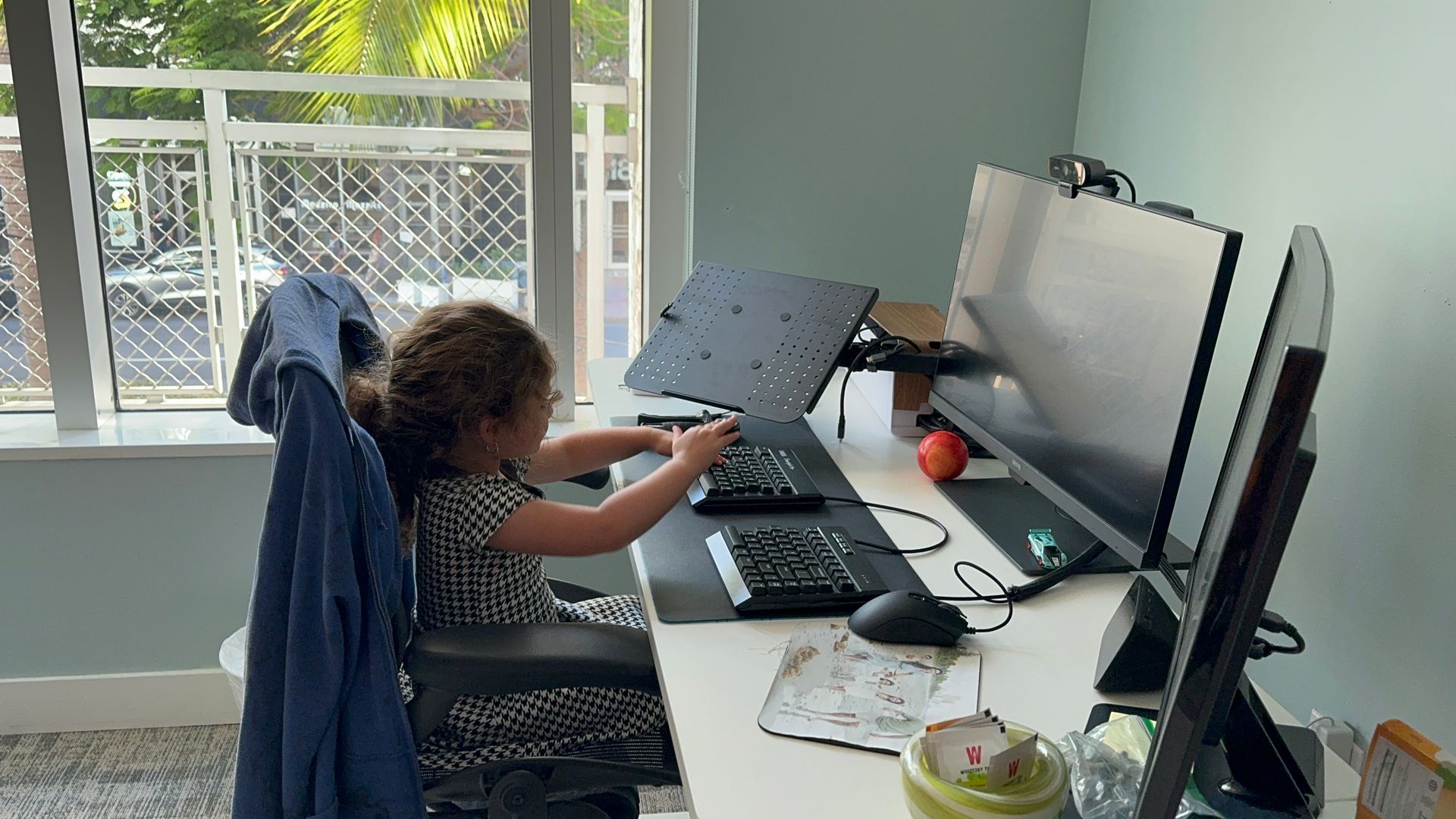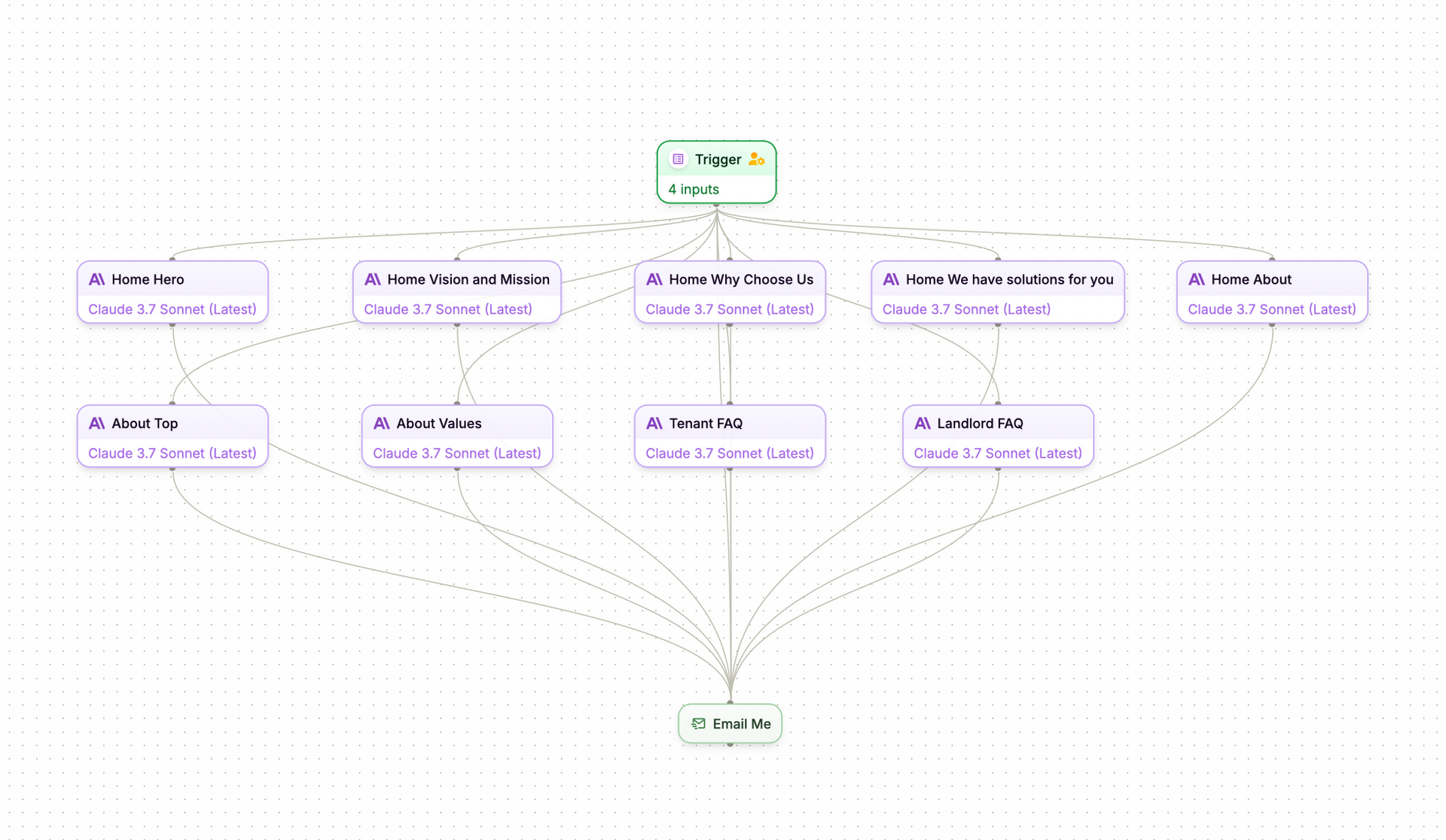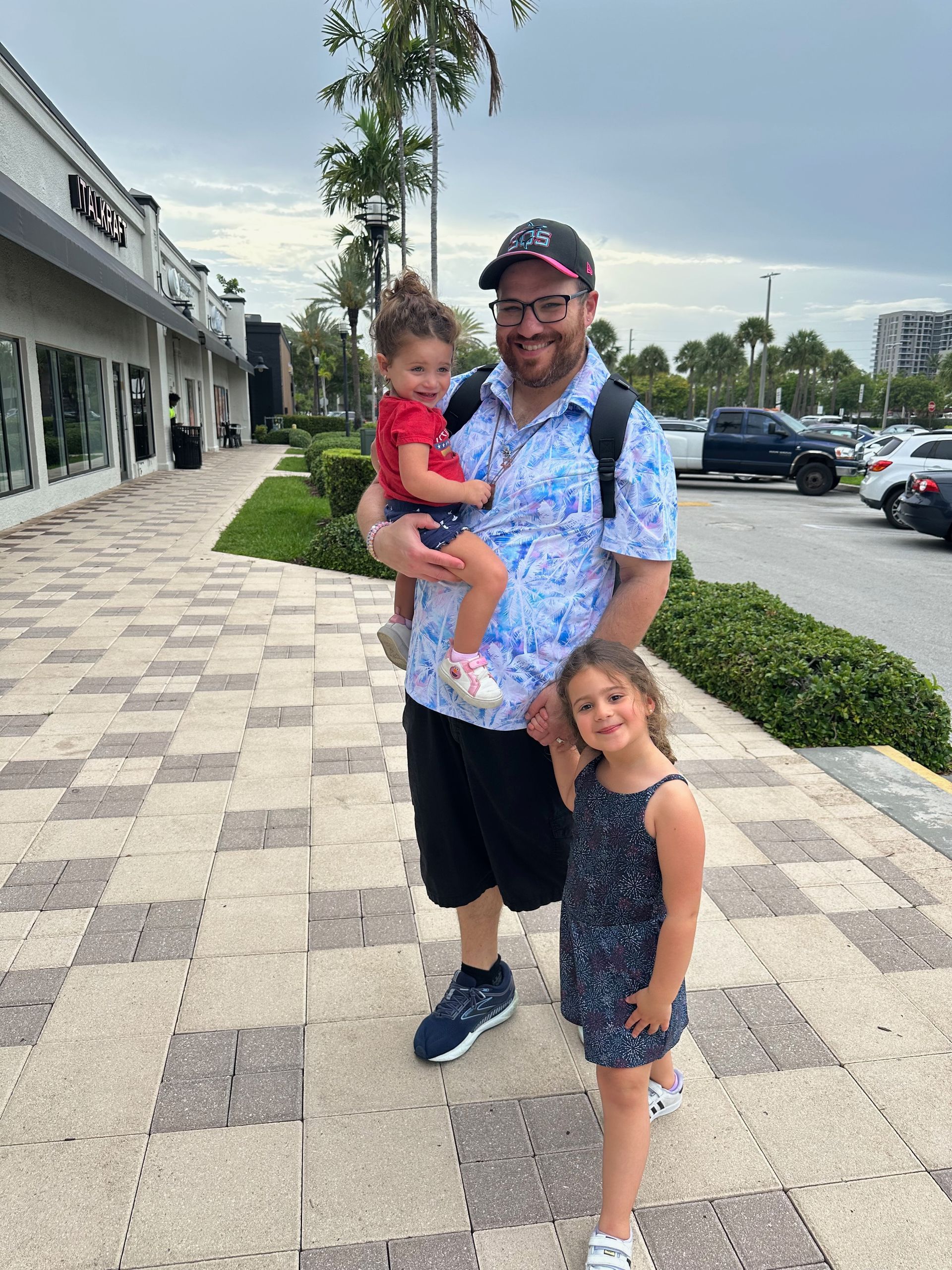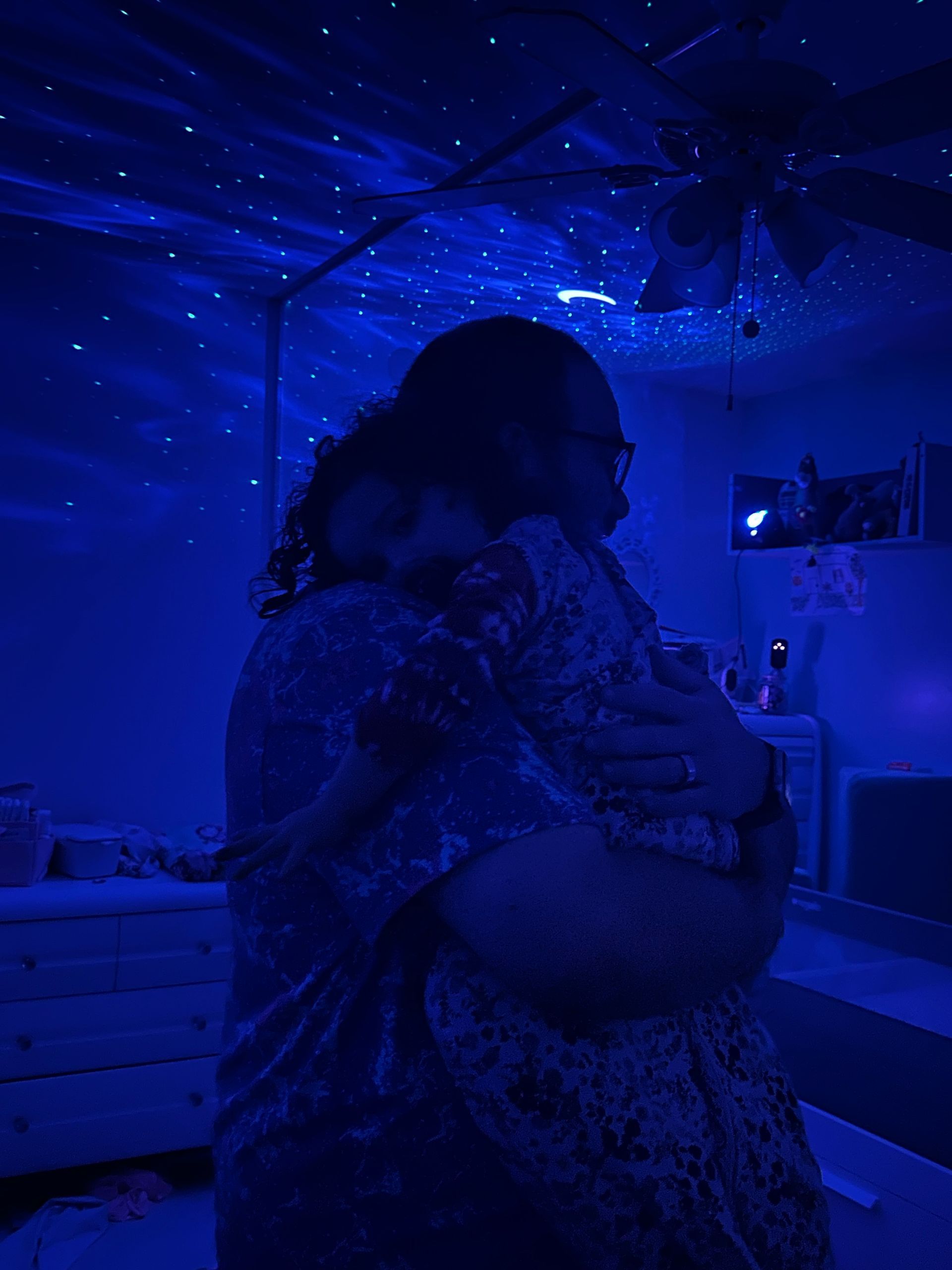
I Asked AI to Build a Website. Here's What It Got Right (and Hilariously Wrong)
You know that feeling when your toddler confidently tells you they can make breakfast, and you find them 20 minutes later with syrup on the ceiling? Yeah, that's basically my relationship with AI website builders.
Look, I've been in the web design game long enough to remember when "responsive design" was still this wild, revolutionary concept. (Shoutout to my fellow millennials who survived the Flash era and lived to tell about it.) And lately, it feels like every other day there's some new AI tool sliding into my LinkedIn DMs promising to "revolutionize web design" or, my personal favorite, "eliminate the need for designers entirely."
So naturally, being both a curious tech guy and someone who enjoys a good experiment, I routinely love to put these bold claims to the test.
Spoiler alert: the results were... let's call them "educational."
The Great AI Website Experiment
Over the years, I've tested pretty much every AI website builder that's crossed my feed. And honestly? I always go in wanting to be impressed. As someone who manages customer websites at DoorLoop and runs branding projects through Zossoz, I'm always hunting for tools that can speed up our process without sacrificing quality.
But here's the thing, and I say this with all the love in the world for our robot overlords: most of these AI tools create more work than they save.
It's like asking someone to cook you dinner, and they hand you a half-assembled sandwich with the ingredients still in the packaging. Technically, yes, they "made" you food. But you're still gonna spend more time fixing it than if you'd just made the sandwich yourself.
Which got me thinking, are we solving the right problem here?
What AI Gets Right (Credit Where It's Due)
Don't get me wrong, AI isn't completely useless at web design. It's actually pretty decent at a few things:
Speed : These tools can pump out a basic site structure faster than I can finish my morning coffee. And that's saying something, because I take my caffeine seriously.
Content generation : Need placeholder copy that's slightly better than Lorem Ipsum? AI's got you covered. It can write decent marketing copy that at least sounds like it was written by a human who's had some coffee.
Design patterns : AI has clearly studied the playbook of modern web design. Clean layouts, proper spacing, mobile-friendly structures, it knows the fundamentals.
But that's where the magic ends.
Where Things Get... Interesting
The problems start when you realize that AI treats web design like it's following a recipe, but it's never actually tasted the food.
The personality problem : Every AI-generated site I've seen has this weird, sterile quality. It's like meeting someone who's technically saying all the right things but has never actually had a conversation. The sites look "professional" but feel like they were designed by someone who learned about human emotion from a Wikipedia article.
Brand understanding? What's that? : I fed one tool a detailed brief for a Miami-based property management company. You know what the AI gave me? A site that could've been for literally any business, anywhere. No local flavor, no understanding of the target audience, no connection to what makes that specific company unique.
It was like asking for a Cuban sandwich and getting Wonder Bread with lunch meat.
The template trap : Here's the real kicker, most AI tools create sites that end up needing so much manual tweaking that you might as well have started with a quality template in the first place. And guess what? A well-designed Duda template already gives you better bones to work with.
Why Duda Still Wins (And I'm Not Just Saying That)
Look, I could talk about Duda all day (occupational hazard), but here's why I keep coming back to it: it strikes the perfect balance between automation and human creativity.
Duda's templates aren't just pretty, they're smart. They're built with real user behavior in mind, optimized for conversions, and designed to be customized without breaking. When I start with a Duda template, I'm building on a foundation that actually works.
Plus, and this is huge for someone managing multiple client projects, Duda's interface doesn't fight you when you want to make it uniquely yours. AI tools? They're like that friend who insists on "helping" you cook dinner but won't let you change the recipe.
The Light at the End of the Tunnel
But here's where things get interesting (and why I'm actually excited about the future). Duda's beta testing something called File to Site , and it's the first AI implementation that actually makes sense to me.
Instead of trying to replace human creativity, it enhances it. You feed it a project brief, and it creates a starting point that actually understands context. But, and this is crucial, it keeps you in the driver's seat. It's AI plus human insight, not AI instead of human insight.
This is a great example of the "human in the loop" approach, and it's exactly what the industry needs. AI handling the heavy lifting, humans handling the soul.
Think about it this way: you wouldn't want a robot to plan your wedding, but you might want one to handle the seating chart calculations. Same principle applies here.
What This Means for the Future
So where does this leave us? Are AI tools the future of web design, or just really expensive ways to feel disappointed?
Honestly, I think we're asking the wrong question. Instead of "Will AI replace web designers?" maybe we should be asking "How can AI make good designers even better?"
Because here's what I've learned from this whole experiment: AI website builders aren't terrible, they're just not ready to replace actual strategy and creativity. They're like really enthusiastic interns, great at following instructions, not so great at understanding what you actually need.
The tools that'll win in the long run aren't the ones trying to eliminate humans from the process. They're the ones that make us more effective at what we're already good at: understanding people, solving problems, and creating connections.
The Bottom Line
For now, I'm sticking with tools that enhance human creativity rather than trying to replace it. Because websites aren't just about looking good, they're about connecting with real people and solving real problems.
And last I checked, AI still hasn't figured out how to have a conversation with your target customer over coffee.
But hey, maybe that's not such a bad thing. Some jobs are worth keeping human.
What's your experience with AI design tools? Have you found any that actually save you time, or are you team "start with a solid template"? I'm always curious to hear how other builders are navigating this whole AI revolution. Hit me up on LinkedIn or drop me a line, I'd love to continue this conversation.
